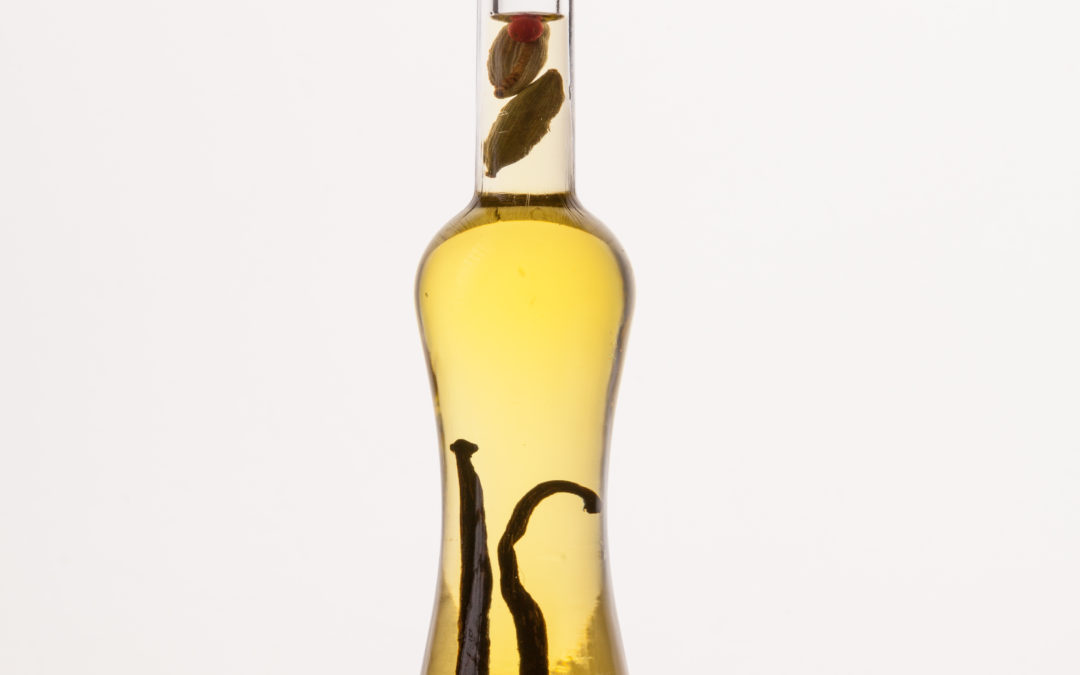BEST OILS FOR YOUR SKIN TYPE & INFUSION TECHNIQUES
Ever wanted to experiment with your own oil blends?
Follow these guidelines to find the best oil for your skin. Make sure you scroll down for hot and cold infusion techniques as well!
These vegetable oils made from the seed, nuts, or kernels of plants, filled with essential fatty acids, easily penetrate into the skin, facilitating the absorption of essential oils and herbal extracts through the skin when mixed into it.
FOR OILY SKIN:
Choose oils with a high percentage of linoleic acid, which helps reduce blemishes by protecting your skin’s surface. Try: safflower, evening primrose, sunflower and grapeseed oil that can help regulate your natural oil production.
FOR DRY SKIN:
Choose oils rich in fatty acids and polyphenols that are nourishing and help fight aging. Try: Macadamia, wheat germ, avocado or neem oil.
FOR NORMAL/COMBINATION SKIN:
Choose oils that have a percent ratio closer to 50% of oleic acids and are more balanced for combination skin types without being too far on either side of the spectrum. Try: almond, sesame, argan, apricot kernel oil, or rosehip oil.
Here are some common oils and their properties to help you choose the best one for your needs.
Almond oil:
Rich in protein, almond oil retains moisture, calms skin, and removes impurities. Its nourishing properties make it an ideal choice for an all over body moisturizer or massage oil.
Apricot kernel oil:
A light oil that contains fatty acids and vitamin A, apricot oil is moisturizing, nourishing, and anti-inflammatory.
Argan oil:
Rich and hydrating, argan oil protects skin and dissolves excess sebum, making it an ideal choice for both hair and skin care.
Avocado oil:
A nutrient rich oil, avocado improves skin elasticity, and increases collagen, making it a great option for facial care.
Castor oil:
Highly viscous, castor oil contains Vitamin E, proteins and Omega 6 & 9 that heals damaged, inflamed skin. Castor oil is also known for its anti-bacterial properties and various medicinal benefits that can help restore skin’s natural moisture and improve hair growth.
Coconut oil:
Rich in antioxidants, and in antimicrobial and antifungal properties, coconut oil is an easily sourced choice for body and hair care.
Jojoba oil:
Jojoba is a light and quick penetrating oil that mimics the action of sebum, the skin’s own natural lubricant, making it an ideal facial oil that nourishes and protects the skin.
Grapeseed oil:
Extracted from the seeds of grapes, grapeseed oil is loaded with powerful antioxidants and natural plant compounds known as oligomeric proanthocyanidin complexes, or OPCs, known for their potent antioxidant activity. Penetrating, slightly astringent, grapeseed oil can help restore collagen at the cellular level and offers antiseptic properties that can help to reduce swelling and speed up wound healing.
Macadamia oil:
Another excellent facial oil, macadamia oil is is rich in palmitoleic acid, which is regenerative, astringent and soothing, and promotes young looking, soft and supple skin.
Neem oil:
A traditional ayurvedic oil, neem oil extract is rich in medicinal properties, with anti-bacterial, anti-fungal, analgesic and anti-inflammatory benefits. Neem oil can help condition the skin and reduce redness, swelling, itching and pain, as well as prevent skin infections.
Olive oil:
olive oil is packed with anti-aging antioxidants and hydrating squalene, making it superb choice for hair, skin, and nails. Although, it has a strong odor of its own, olive oil is a simple, easy to find moisturizing ingredient.
Rosehip oil:
A powerful skin cell regenerator, rosehip oil can help prevent premature skin aging.
Rosehip oil also contains Vitamin C and E giving it anti-inflammatory properties for skin conditions such as eczema and psoriasis.
Vegetable glycerin:
Naturally derived from plants, vegetable glycerin is a soothing skin emollient, lubricant and humectant. Glycerin helps the skin retain its moisture and restore natural pH balance.
Vitamin E oil:
An antioxidant rich oil, vitamin E is an excellent natural preservative that can be added to oil blends and salves to prolong their shelf life. Also beneficial on its own for soothing scars and stretch marks.
Wheat germ oil:
This rich, nourishing oil is a great choice oil for dry, mature skin. It’s anti-inflammatory properties are also appropriate for the pain and swelling of eczema and psoriasis.
INFUSED OILS
SUN INFUSION:
-
- Use the sun to naturally infuse oil with the goodness of herbs.
- Place herbs in a clean, dry quart jar.
- Fill remaining space in jar with oil, making sure to cover herbs by at least 1” If your herbs soak up all of the oil, then pour more on top to ensure that the herbs are well covered.
- Stir well and cap the jar tightly.
- Place the jar in a sunny and warm windowsill. Shake at least once a day.
- After 2-3 weeks, strain the herbs out of the oil using a cheesecloth.
- Pour into glass bottles and store in a cool dark place. The oil should keep for at least a year.
HEATED INFUSION:
Place herbs in double boiler, and cover by at least 1” with oil. Gently heat the herbs over very low heat for 1-5 hours taking care not to burn the herbs.
Turn off the heat and allow to cool. The ideal temperature using this method is 90 F to 110 F. You can also use a dehydrator or a yogurt maker.
Strain the herbs out of the oil using a cheesecloth.
Pour into glass bottles. Store in a cool dark place. The oil should keep for at least a year.






Leave A Comment